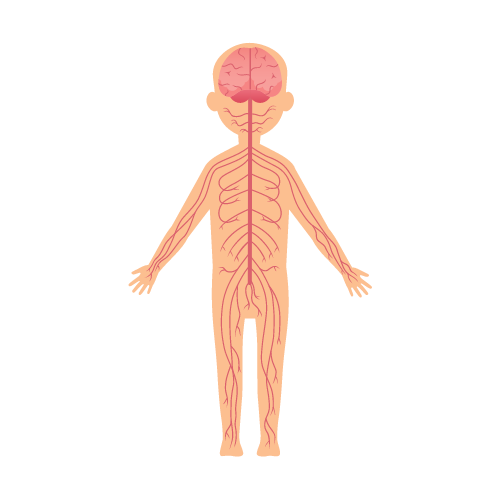Learn About Neuroblastoma

What is Neuroblastoma?
Neuroblastoma is a rare type of cancer that mostly affects babies and young children. It develops from specialized nerve cells (neuroblasts), left behind from a baby's development in the womb.
It most commonly occurs in one of the adrenal glands situated above the kidneys or in the nerve tissue that runs alongside the spinal cord in the neck, chest, tummy, or pelvis.
Neuroblastoma can spread to other organs such as the bone marrow, bone, liver, and skin. It is the most common cancer in babies under 1 year old.
It is rare in children older than 10 years, and it is unusual in adults.
Signs & Symptoms
The symptoms of neuroblastoma vary depending on where the cancer is and whether it has spread.
Some of the more common symptoms include:
- Abdominal swelling, pain, constipation, or difficulty urinating if a tumor is present in the abdomen
- A lump or bump in the neck that can sometimes be accompanied by drooping of the eyelid, a small pupil, and lack of sweating on the same side of the face
- Bone pain
- Fatigue, if the disease has spread to the bone marrow
- Bleeding and bruising
- Fever
- Difficulty breathing if the tumor is present in the chest
- Weakness or paralysis if the tumor is near the spinal cord
Less frequent symptoms caused by hormones released by the neuroblastoma cells include:
- High blood pressure
- Rapid heartbeat
- Persistent diarrhea
Causes
Neuroblastoma is thought to occur as a result of genetic mutations present at birth. These mutations are not inherited and cannot be prevented.
There is no known cause of neuroblastoma, and it is not contagious.
Treatment
Treatment for neuroblastoma depends on a number of factors, including the age of the child and how advanced the cancer is. Treatment may include surgery, chemotherapy, radiotherapy, and stem cell transplant.
